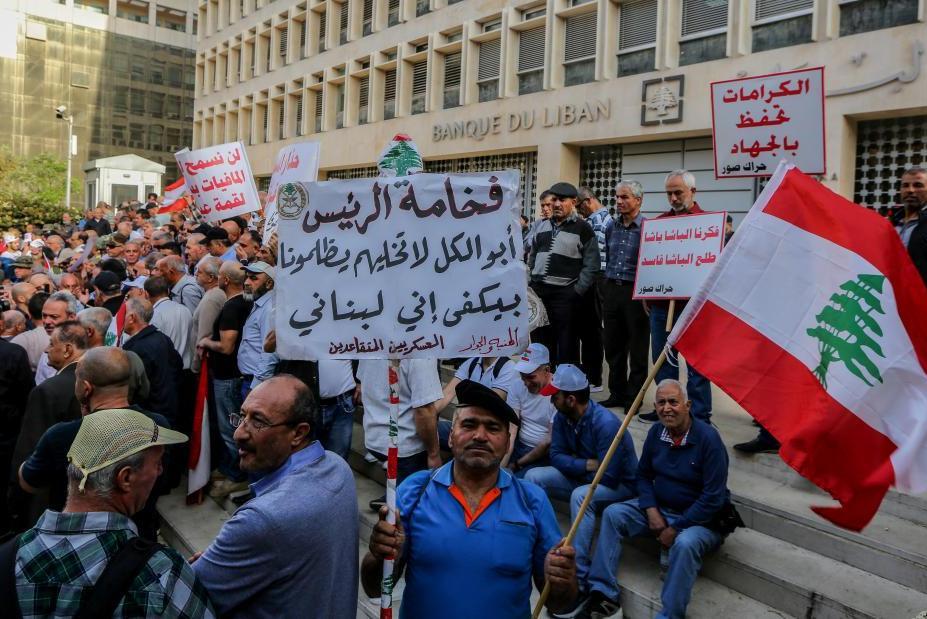https://foreignpolicy.com/2019/11/01...druze-rage-on/
In late October, Lebanese Prime Minister Saad Hariri resigned after weeks of protest against his government. Days later, news broke that the Trump administration would be withholding military assistance to the beleaguered nation. Although the exact reason for the freeze is unclear, U.S. President Donald Trump has long threatened to punish the Lebanese government over the outsized role Hezbollah plays in Lebanese politics and society.
With Beirut now facing an uncertain economic future—and with protesters continuing their call for an overhaul of the entire political class—we’ve gathered our top reads from the last year to explain why the uprising started and what comes next.
Lebanon’s most recent round of trouble dates back to its last election, in 2018, which returned Hariri to power but led to a nine-month struggle to form a coalition government amid a surge in popularity for Hezbollah. Once installed in late January 2019, the new unity government had difficulty doing much of anything. And, as the professor Sune Haugbolle wrote in February, “[s]topgap measures will not suffice much longer. Pollution is rampant; burned and dumped trash is spoiling the natural environment and contaminating water. Lebanon’s economy is faltering under the weight of mismanagement, debt, and Syrian refugees.”
That’s why, he argued, it would be a mistake for the United States to jump in and try to punish Hezbollah for its increasingly strong political position. Anchal Vohra, a Beirut-based reporter, had much the same to say after a visit to Lebanon by U.S. Secretary of State Mike Pompeo in March. His threat, she explained, was clear: “If Lebanon fails to limit Hezbollah’s political and military power, it would risk not just losing U.S. aid but also a more severe response, possibly in the form of debilitating national sanctions.” But that, she argued, might only strengthen the group in the longer run.
As the question of what to do about Hezbollah loomed, Lebanon’s other governance problems stacked up.
In February, Firas Maksad of George Washington University explains, “George Zreik, a struggling father who could no longer afford his young daughter’s tuition, torched himself in her school’s playground. His desperate act of self-immolation shook the country to its core.” Then, over the summer, a former Miss Lebanon runner-up died of cancer, which, for many observers, “personified mounting fears about living in a country where the air, water, and soil are increasingly toxic,” reports Maskad, along with the writer Sarah Lord. As the country’s levels of pollution have increased, deaths from chronic respiratory disease and cancer have soared.
In late October, wildfires raged across the country, and “[e]ven as Lebanon’s once lush mountains were still smoldering, an out-of-touch government announced a fresh round of taxes, including on WhatsApp, the popular messaging service,” Maksad notes. “The Lebanese had finally had enough.”
To be sure, protesters had taken to the streets before, but these marches have been different. Rather than dividing along sectarian lines, the movement includes Christians, Muslims, and Druze, rural Lebanese and urbanites alike—all demanding the resignation of the government.
In particular, the participation of Shiite protesters despite an injunction from Hezbollah leader Hassan Nasrallah to support the government raised questions about the group’s future—and Iran’s influence over it. According to Hanin Ghaddar, a fellow at the Washington Institute for Near East Policy, the protests in Lebanon and Iraq have been very revealing. “For the Shiite communities in Iraq and Lebanon, Tehran and its proxies have failed to translate military and political victories into a socioeconomic vision; simply put, Iran’s resistance narrative did not put food on the table,” she writes. And that is why its influence across the Middle East, she points out, might be on the wane.
For Vohra, both countries’ institutionalization of sectarianism is to blame for the uprising. The division of power in both “has reduced sectarian conflict but failed at making government efficient or transparent.” That’s why, she writes, “[s]ome Lebanese believe that this long after the civil war, it is time to move on from the old system and take the risk to invest in something different. In last year’s elections, a new movement of independent, nonsectarian ‘civil society’ candidates stepped up, and though only one succeeded in winning a seat, amid claims they are too disparate and divided to succeed, they are still determined to try again.”
At the very least, even after Hariri’s resignation, it seems clear that the protesters will push on. Many seem determined to continue marching until every last representative of the old guard is gone. “Many protesters say their leaders have purposely fostered sectarian divisions in the country to keep people scared and feeling dependent on their political parties,” explains Rebecca Collard, a broadcast journalist.
And perhaps that is why they have appointed no leader for themselves. “The fact that the government has no one to even try to negotiate with is a strength.”
Read More
Lebanon’s Protests Are Leaderless. That May Be Their Strength.
Fed up with decades of economic mismanagement and corruption, most demonstrators just want the government gone.





 Reply With Quote
Reply With Quote






Connect With Us